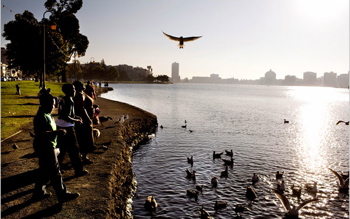Sometimes I think how strange it is that after you stop being a baby there isn’t anyone who sees you everyday. There is one day your mother doesn’t look at you once and then there are a thousand more days to keep track of yourself.
So here, for me, is a small inventory of the things that have changed:
- My hair is three or more inches longer, the longest it’s been in years and years and I have seen many new states
- I have lived alone for the only time
- I have a set of new knives
- I worry in new ways, with less narcissism, wider and more like an anxiety about everyone and how they could be hurt or how I could hurt them. I don’t know if it is the way the claws and cranes come in, stretching you out and teaching you about the biggest ways you can feel or if it is just a small sliver of getting older and pushing down those old strategies for putting yourself in the center of all that is good or bad or the best and the worst
- I don’t write anymore
*
In August we flew to Seattle with a friend working on his commercial pilot certificate, making our way over the Oregon trees we were lost in on foot a few weeks before. I’d just finished Solnit’s A Field Guide to Getting Lost, now knowing that the word “lost” comes from the Old Norse los, meaning the disbanding of an army. On the plane there were so many ways to prevent you from disbanding, GPS and maps and the constant checking-in over the frequencies, relaying locations along the way with an alphabet stretched to more audible words.
About the last point: it’s true, or very rarely. I never think I am a writer, I think I like to have things accomplished, and to remember, and I like reading and used to be sad a lot. In the air, though, I thought how nice it was that with all the maps and GPS there was still someone from the ground to call to, someone there to tell your plans. All the time above us this is happening: here is who I am, where I am, here is where I am going. I used to do that.
*
In A Field Guide Solnit talks about the artist Yves Klein, who one day with his friends decided to divide the world among themselves: the earth, the air, the sky. Klein signs his name to the sky:
In 1946, while still an adolescent, I was to sign my name on the other side of the sky during a fantastic “realistico-imaginary” journey. That day, as I lay stretched upon the beach of Nice, I began to feel hatred for birds which flew back and forth across my blue sky, cloudless sky, because they tried to bore holes in my greatest and most beautiful work.
We saw a fireworks show from the plane, taking place somewhere right outside of Portland. Everything is well documented, small and still from that high, but this was still miraculous: those fireworks that take up the whole sky from the ground, the whole huge sky, and they don’t take up any of it at all, not even close.
I think about Klein claiming his sky, hating the birds that flew through his masterpiece that he couldn’t fathom the size of, that no one can, not from that one place on the earth where you only are. And I think about all the claims I make everyday- who I was and what was mine- and what a tiny little piece I see. There are days I miss making claims like this, though, sometimes.





